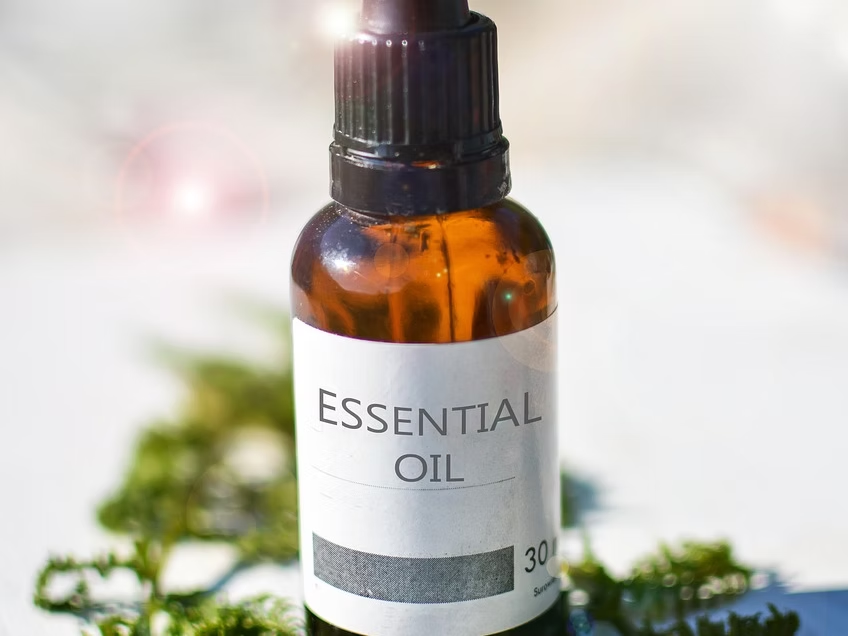
Over the years, aromatherapy has gained recognition as a holistic approach to enhancing well-being through the use of important oils derived from plants. Healers and wellness enthusiasts alike appreciate how these natural extracts can promote relaxation, alleviate stress, and support physical health. Adding Aromatherapy to Massage enhances the relaxation benefits of massage therapy. They often utilize aromatherapy to improve mood, enhance cognitive performance, and even deliver skin benefits. Through various applications, including inhalation and topical use, individuals can tap into the therapeutic properties of important oils, making aromatherapy a versatile addition to personal health practices.
Key Takeaways:
- Aromatherapy can effectively reduce stress and anxiety, utilizing calming necessary oils like lavender and chamomile to promote relaxation.
- Improved sleep quality and mood enhancement are common benefits, with oils such as cedarwood for sleep and citrus scents for energy and positivity.
- It offers a natural approach to pain management, immune support, and respiratory health, making it a versatile addition to holistic wellness practices.
Definition of Aromatherapy
The practice of aromatherapy involves the use of natural plant extracts known as crucial oils to enhance physical, mental, and emotional well-being. He or she may utilize these oils through inhalation, topical application, or diffusion to tap into their beneficial properties. They can experience a variety of advantages, such as stress reduction, improved sleep quality, and mood enhancement, making aromatherapy a holistic approach to health. Essential oils possess unique properties that can offer a therapeutic effect, thus contributing to a more balanced and healthy lifestyle.
Key Benefits of Aromatherapy
Your exploration of aromatherapy reveals various benefits that can enhance overall well-being. By harnessing the power of necessary oils, individuals can experience improvements in physical, mental, and emotional health. From reducing stress to supporting the immune system, aromatherapy offers natural solutions tailored to unique needs.
Stress and Anxiety Reduction
Any discussion of stress relief often highlights the calming effects of necessary oils like lavender, chamomile, and bergamot. These plant extracts can help individuals manage stress and anxiety naturally, fostering a sense of relaxation that supports mental well-being.
Improved Sleep Quality
Aromatherapy has gained recognition for its ability to promote better sleep. By diffusing necessary oils such as lavender, cedarwood, and ylang-ylang, individuals can create a soothing nighttime atmosphere that aids in overcoming insomnia and sleep disturbances.
Anxiety can significantly impact sleep quality, leading to restlessness and difficulty falling asleep. Aromatherapy addresses this issue by providing calming scents that encourage relaxation. The sedative properties of specific necessary oils help reduce racing thoughts and create a peaceful environment, ultimately leading to improved sleep patterns.
Emotional and Mental Health
Some individuals find that aromatherapy offers significant support for emotional and mental health. The practice can help alleviate stress and anxiety, foster relaxation, and enhance overall well-being through the careful selection of imperative oils known for their calming and uplifting properties. By incorporating aromatherapy into daily routines, individuals may experience improved emotional stability and a greater sense of balance in their lives.
Mood Enhancement
Beside its calming effects, aromatherapy is beneficial for mood enhancement. Essential oils like citrus—specifically orange and lemon—can promote feelings of happiness and stimulate the release of neurotransmitters such as serotonin and dopamine. This can lead to increased energy levels and a brighter outlook, making aromatherapy a valuable tool for managing mood shifts throughout the day.
Emotional Balance
Balance is imperative for maintaining emotional well-being, and aromatherapy can play a significant role in achieving this state. Essential oils are chosen based on their unique properties, which may help uplift or soothe emotions. This approach provides individuals with natural options for promoting emotional stability and resilience, allowing them to navigate daily challenges more effectively.
Plus, emotional balance can be supported by incorporating a variety of imperative oils tailored to individual needs. For instance, calming oils like lavender and chamomile can help reduce anxiety, while uplifting oils such as bergamot and lemon may boost mood. By understanding their emotional triggers, individuals can select the right imperative oils to create a personalized aromatherapy experience that nurtures their mental well-being and encourages emotional resilience.
Physical Health Benefits
Not only does aromatherapy enhance emotional and mental well-being, but it also offers notable physical health benefits. Individuals may experience improvements in various physical ailments through the use of crucial oils, which have been shown to support pain management, respiratory health, and skin care. As a holistic approach, aromatherapy serves as a complementary method to conventional treatments, enabling individuals to find relief naturally.
Pain Management
Along with its emotional benefits, aromatherapy can also assist in pain management. Essential oils such as peppermint and eucalyptus possess analgesic properties, making them beneficial for alleviating conditions like headaches, muscle soreness, and migraines. When integrated into a regular wellness routine, these oils can provide significant relief for those suffering from chronic pain.
Respiratory Benefits
Behind the soothing scents of certain crucial oils lies the potential for improved respiratory health. Oils like eucalyptus and tea tree can act as natural decongestants, helping individuals breathe easier. These oils can be diffused or applied topically, supporting lung function during cold and allergy seasons.
This therapeutic approach leverages the antimicrobial properties of crucial oils, which can aid in clearing congestion and providing comfort during respiratory discomfort. Research indicates that inhaling eucalyptus oil may help reduce symptoms of bronchitis, while tea tree oil’s natural anti-inflammatory effects can contribute to a more breathable environment. By incorporating these oils into daily routines, individuals can support their respiratory health effectively and naturally.
Cognitive and Immune Support
For individuals seeking to enhance brain function and bolster their immune systems, aromatherapy offers valuable benefits. Essential oils like peppermint and rosemary have been associated with improved cognitive performance, promoting focus and concentration. Meanwhile, oils such as tea tree and eucalyptus provide antimicrobial properties that can support immune health. By incorporating aromatherapy into their daily routines, they may experience a boost in mental clarity while also fostering a healthier environment.
Enhanced Cognitive Performance
Around the world, people are turning to necessary oils like peppermint and rosemary to enhance cognitive performance. Research suggests that these oils may increase alertness and improve concentration, making them a popular choice for anyone aiming to optimize their mental function. By using these oils during study sessions or while working, individuals can create a stimulating atmosphere that supports productivity.
Immune System Support
Across various studies, necessary oils have been shown to possess properties that can enhance immune function. Oils like tea tree, eucalyptus, and oregano have demonstrated antimicrobial effects, which can help the body fend off infections and illnesses. This can be especially beneficial during cold and flu seasons when maintaining a robust immune response is necessary for overall health. By incorporating these oils into their wellness routines, individuals can promote a healthier environment and potentially reduce the risk of illness.
Cognitive function and immune support go hand in hand, as a healthy immune system can also contribute to optimal brain health. She may find that when her immune system is functioning effectively, she experiences sharper focus and enhanced mental clarity. Additionally, using necessary oils known for their immune-boosting properties can help maintain an overall sense of well-being, allowing her to thrive both mentally and physically.
Skin Care and Nausea Alleviation
Many individuals turn to aromatherapy for its beneficial effects on skin care and alleviating nausea. The use of imperative oils like lavender and tea tree can contribute to healthier skin, offering soothing properties that help combat inflammation and irritation. Additionally, certain oils can serve as natural remedies for nausea, providing a gentle alternative to conventional treatments.
Skin Care
After incorporating imperative oils into their skin care routine, many people notice improvements in their complexion and overall skin health. Oils like chamomile and tea tree exhibit anti-inflammatory and antiseptic qualities, making them effective in addressing various skin issues, including acne and dryness.
Alleviation of Nausea
Around the world, people explore aromatherapy as a natural solution for nausea relief. Oils such as ginger and peppermint are renowned for their anti-nausea properties, enabling individuals to cope with discomfort in a non-invasive manner.
Hence, aromatherapy offers a promising approach to alleviating nausea. The inhalation of certain imperative oils can stimulate the olfactory system, which may help mitigate feelings of nausea and vomiting. This natural remedy is particularly beneficial for those undergoing treatments like chemotherapy or experiencing motion sickness, providing comfort and support without the side effects often associated with pharmaceutical alternatives.
Conclusion
Summing up, the benefits of aromatherapy extend beyond mere relaxation, offering a holistic approach to enhance physical, mental, and emotional well-being. He, she, or they may find relief from stress and anxiety, improved sleep quality, and even advantages in pain management through the use of vital oils. Additionally, aromatherapy can elevate mood, boost cognitive performance, and support respiratory health. By integrating these natural plant extracts into their daily routine, individuals can promote overall wellness and emotional balance while enjoying the diverse range of benefits this practice has to offer.
FAQ
Q: What are the primary health benefits associated with aromatherapy?
A: Aromatherapy offers a wide range of health benefits, including stress and anxiety reduction, improved sleep quality, and pain management. Essential oils like lavender and bergamot are well-known for their calming effects, while oils such as peppermint and eucalyptus can assist in pain relief. Additionally, certain scents may enhance cognitive performance and promote a more positive mood, making aromatherapy a holistic approach to well-being.
Q: How can aromatherapy support mental and emotional health?
A: Aromatherapy can positively influence mental and emotional health by promoting emotional balance and mood enhancement. Essential oils like citrus scents can invigorate and uplift, while others like chamomile and lavender create a calming environment. Moreover, the inhalation of these oils may stimulate the production of neurotransmitters such as serotonin, which plays a vital role in mood regulation. This makes aromatherapy an effective tool for managing symptoms of anxiety and depression.
Q: Are there any specific crucial oils recommended for improving sleep?
A: Yes, several crucial oils are particularly effective for enhancing sleep quality. Lavender is frequently cited for its relaxing properties, whereas oils like cedarwood and ylang-ylang are also beneficial for promoting restful sleep. Diffusing these oils in a bedroom setting or adding them to a bedtime routine may help address insomnia or sleep disturbances, providing a natural way to enhance sleep hygiene.









